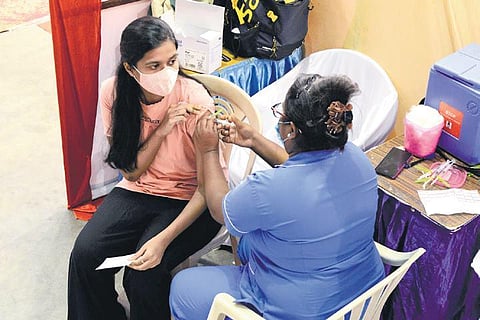

CHENNAI: Giving a gentle nudge to the Union government over the disproportionately low allocation of vaccine doses to Tamil Nadu, Chief Minister MK Stalin on Tuesday renewed his request to Prime Minister Narendra Modi to make a special allocation of one crore doses to compensate for the fewer number given to Tamil Nadu in the past months.
The Chief Minister, in his letter to the Prime Minister, said till July 8, the state had received only 29,18,110 vaccine doses from the Union government for people in the 18-44 years category and 1,30,08,440 vaccine doses for those above 45 years.
"As the allocation of vaccines is very inadequate, we are finding it extremely difficult to meet the huge demand for vaccination throughout the state. The success of my government’s efforts to eliminate vaccine hesitancy and make the vaccination drive a mass movement now squarely rests on the doses made available to us," he underscored.
Pointing out that Tamil Nadu had not received vaccine doses proportionate to its population size which resulted in the current acute shortage, Stalin said, “The number of vaccine doses provided to our state is only 302 per thousand eligible population. This is very low when compared to the vaccine doses made available to comparable states like Gujarat, Karnataka and Rajasthan, which are at 533, 493 and 446 respectively.”
In this connection, Stalin recalled that the Union Health Ministry, in its affidavit before the Supreme Court recently, specifically submitted that states had been allocated the available vaccine doses in proportion to the population between 18-44 years of age to ensure an equitable distribution.